“Chefs, What Are Some Tips And Tricks That Everyone Should Know About Cooking?” (51 Answers)
Watching cooking shows is a guilty pleasure of ours. There’s nothing like looking at delicious food and enjoying the rush of a world-class kitchen to inspire you to cook something fancier than mac and cheese. But things don’t have to be as dramatic and fiery as a TV show with an overly-angry chef (“It’s RAW!") to help us up our cooking game. For instance, we’re big fans of down-to-earth friendly advice that we find online.
Redditor u/boogerflinger served up a delicious thread over on r/AskReddit when they asked the site’s resident chefs to share their most useful tips and tricks. It’s the kind of kitchen wisdom that pretty much everyone should know. From putting in the effort to prep all of your ingredients beforehand and not crowding the frying pan with food to awesome hacks on cooking a good steak and more!
You’re almost guaranteed to start feeling hungry while reading this list. So make sure you’ve got a snack or two to tide you over till you can rush to the kitchen and try all of these cooking tips out yourselves, Pandas. Upvote the advice you thought was the most helpful, and share your own cooking hacks in the comments. There’s really only one left to say: bon appétit.
Talented and well-known pie artist Jessica Leigh Clark-Bojin, the author of 'Pies Are Awesome' was kind enough to share with Bored Panda some of her wisdom about creating contrasting taste profiles and how to cut back on overwhelming sweetness in recipes. She revealed to us that one of her personal pet peeves is when desserts end up being overly sweet. One-note flavors aren't all that impressive. And no matter how much we love sweet foods (and trust us, we do! Guess who's munching on a chocolate chip cookie right now?), it's pretty darn boring if that's the only thing going on.
"If your recipe calls for a just bonkers amount of sugar, you want to offset that with something bold like a big citrus hit, daring amount of spice, or other strong component like really dark chocolate or something new and exotic to your guests’ palates," she said how bakers can turn the overwhelming sweetness into something far more interesting. "On the flip side, when you are working with more delicate, subtle flavors like magnolia petals or certain roasted nuts, you really want to go easy on the sweetness so the 'star flavors' get their moment in the sun!" Scroll down for the full interview if you want to learn what taste contrasts work and which ones will probably end up befuddling your guests' palates.
#1
If your cutting board keeps slipping around the counter, put a wet towel or paper towel under it to keep it in its place. It'll make your chopping process much safer than it would be otherwise!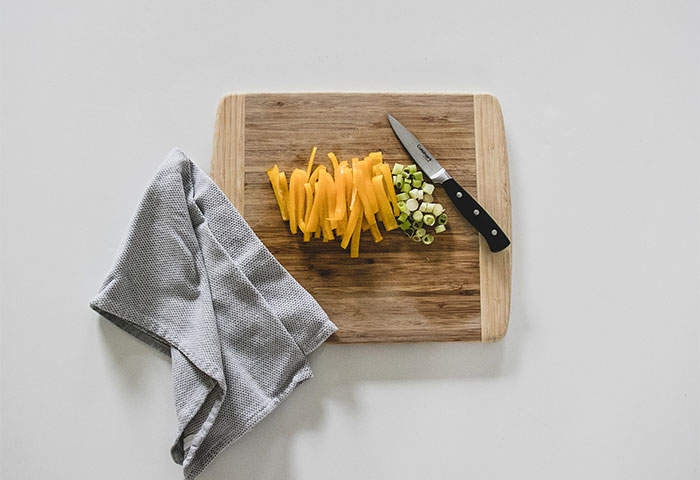
Image credits: u/munificent
According to baking expert, TV pie judge, and author Jessica, making a mistake in the kitchen isn't the end of the world. For instance, if you add way too much sugar to your recipe, you could solve the problem by cutting down the portion size for your guests. Or you could pair the dessert with something far less sweet, maybe even something with a savory taste profile.
"For example, if your pie filling is too sweet, you can still use it in hand pies with an unsweetened crust because the ratio of crust to filling is much higher in something akin to a pop tart and your guests won't be getting a giant mouth full of diabetes like they would with a traditional deep dish pie. Or even skip the pie crust altogether and serve your mega sweet filling drizzled over some brie on a cracker! Won't your friends think you’re posh…," Jessica explained how a good imagination and some flexibility can turn any challenge or disaster into an opportunity.
The pie artist herself opened up to Bored Panda and told us that she's a big fan of pairing sweet flavors with sharp, sour notes. For instance, you could pair tart cherries with chocolates, sautée Granny Smith apples in brown sugar syrup, etc.
#2
Clean up your station (or kitchen) as you go! You'll become so much more efficient in the kitchen, you'll always have space to work, and you'll have very little cleaning to do when you're finished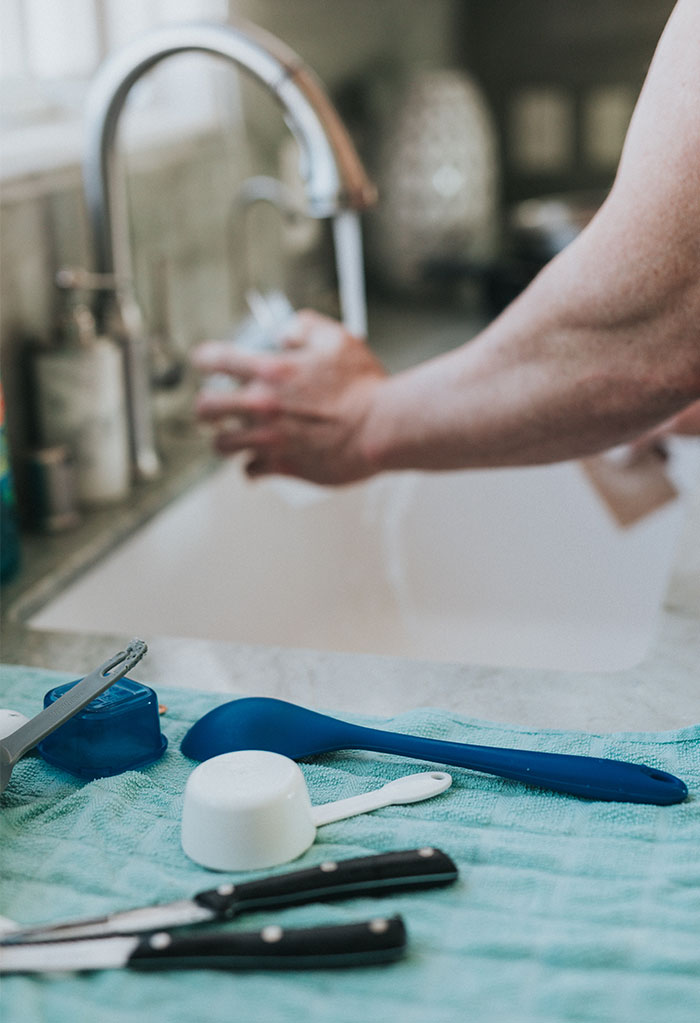
Image credits: u/hevorious
#3
A falling knife has no handle.Forever true. Don't learn this one the hard way.
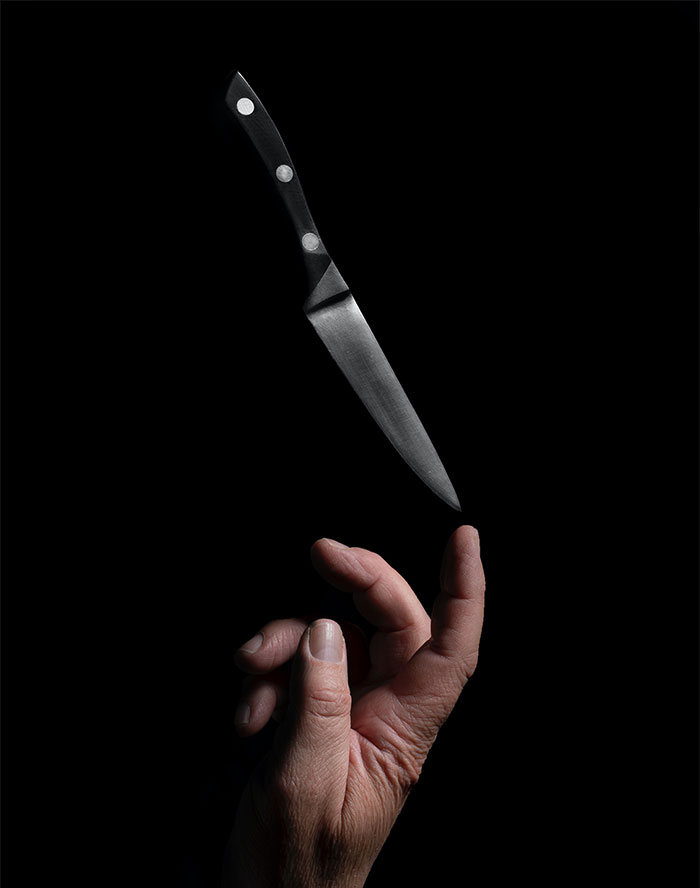
Image credits: chicostick
"This keeps your tastebuds on their toes!" Jessica said. "In general, anything that will create a bit of contrast will help your flavors shine in your dish—a tiny bit of exposure to the opposite flavor always makes the sensation of your key flavor stronger."
The pie artist suggested that you try and blend your sweet tastes with something salty like salted nuts. You could also replace the saltiness with something sour like citrus fruits or even something bitter (e.g. dark chocolate). That way, you'll enhance both flavors. However, try not to go overboard! Experimentation is great, but not when you turn your guests into unwitting guinea pigs.
"Be careful to contrast rather than confuse the palate. You want opposite flavors, not competing flavors. Lemon with sweet cream = good. Lemon with mint or espresso = ummm… probably not."
#4
When you're cooking burgers with any method, make a small dent on the top of the patty (right in the center) with your thumb. When they cook, they'll stay completely flat instead of shrinking and getting very tall in the middle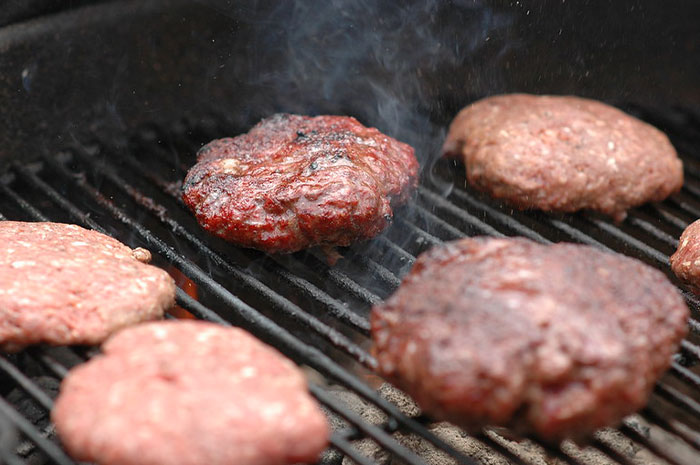
Image credits: u/peachpop123
#5
If you're using raw, chopped onions in a dish, soak them in cold water first to draw out some of that bite. It's a really small thing, but it can make a world of difference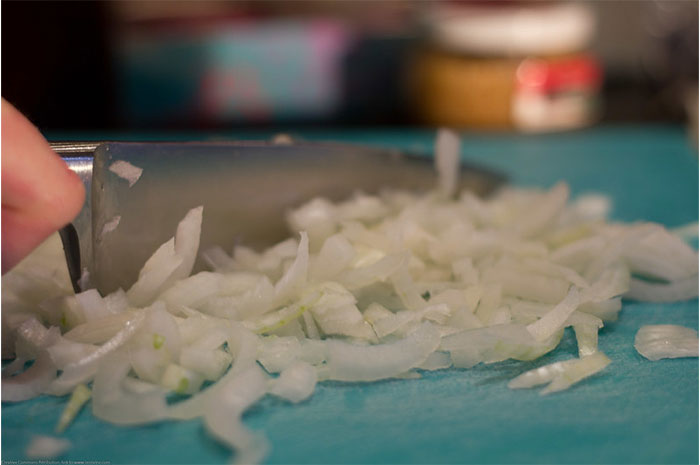
Image credits: chaos37
#6
No matter what you're pan frying, don't crowd the pan. Get a bigger pan or cook them in batches, but the reason your potatoes and veggies aren't getting brown and crisp is because they're drowning in their own juice!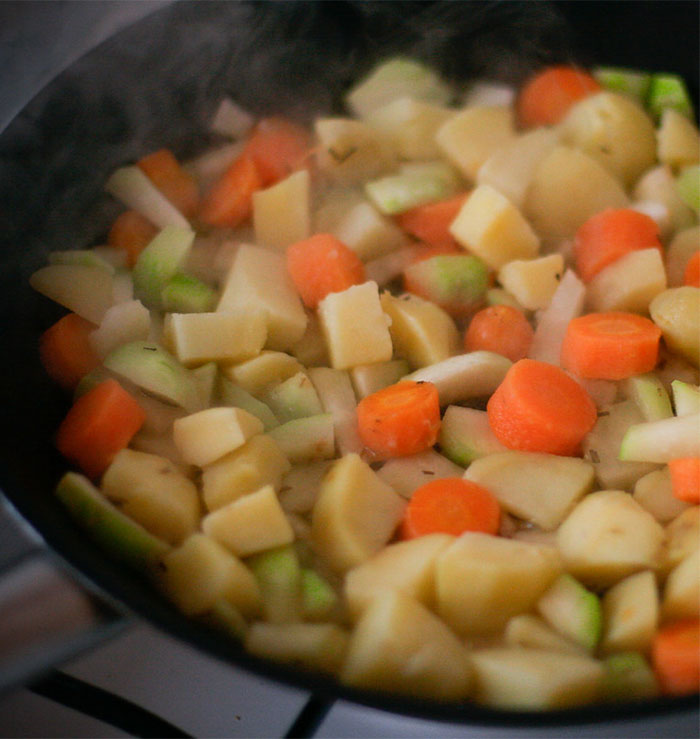
Image credits: BuffaloBounce
In our personal experience, practice is better than theory when it comes to honing your skills with the knife, spoon, and pan. It’s one thing to understand how flavor profiles work and the dozen+ different uses of butter on a theoretical level, it’s something else entirely to get the results you want when you’re sweating from all the effort.
In short, we feel that the very best chefs, bakers, and food experts are the ones who learn from their mistakes and strive to get better every single day. As opposed to folks who order in pizza, watch pro chefs messing up on TV, and mumble ‘how could you make such an obvious mistake, I could have done better than that’ in between mouthfuls. We salute everyone who burns their eggs and overcooks their rice, and sees every mistake as a valuable lesson.
The fact is that many of us have lots of misconceptions about food. We tend to ‘inherit’ them from the people who raised them. If your parents or grandparents used to cook food a specific way with very particular ingredients, odds are that you’ll follow in their footsteps without thinking too much about whether or not it’s the ‘right’ or ‘best’ way to do things.
#7
FLIP THE KNIFE OVER and use the back of it to shove stuff into a pot, not the sharp side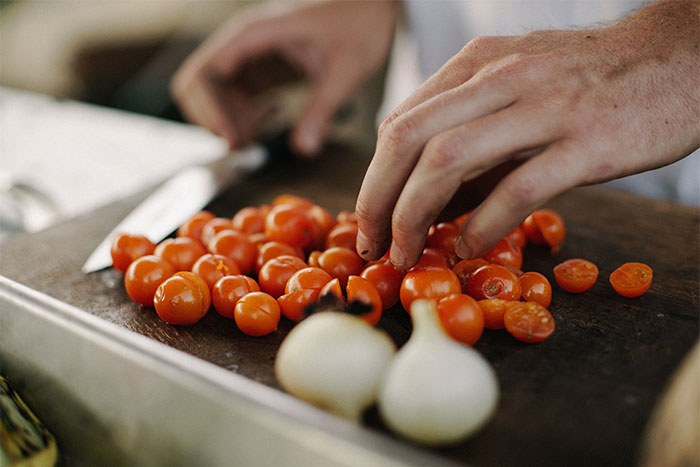
Image credits: Akoola
#8
Always, ALWAYS taste your food while cooking. I always have like 5 spoons beside me while cooking. This allows you to accurately adjust seasoning, flavours, and cooking time.It is tough at first to know what to adjust, but you get better at it with time and it will really improve the quality of food you make (especially over-salting).
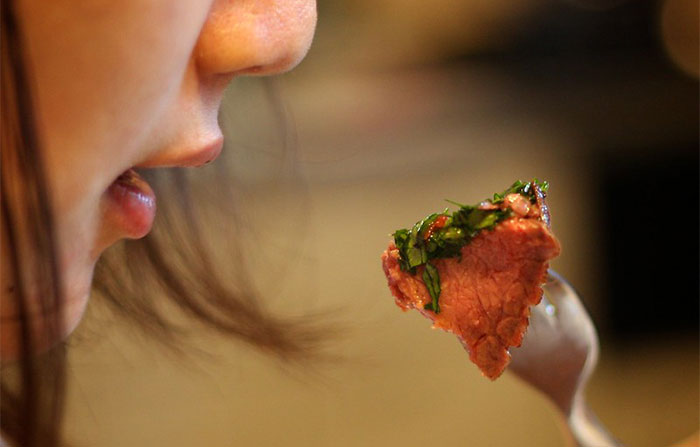
Image credits: arshonagon
#9
Salads are hard to make absolutely delicious without lots of dressing, but when you chop up juicy vegetables for a salad — like tomatoes, peppers, or cucumber — salt them before you add them to the salad. It'll remove some of the excess moisture so things don't get soggy, and it'll brighten up the whole salad without making it salty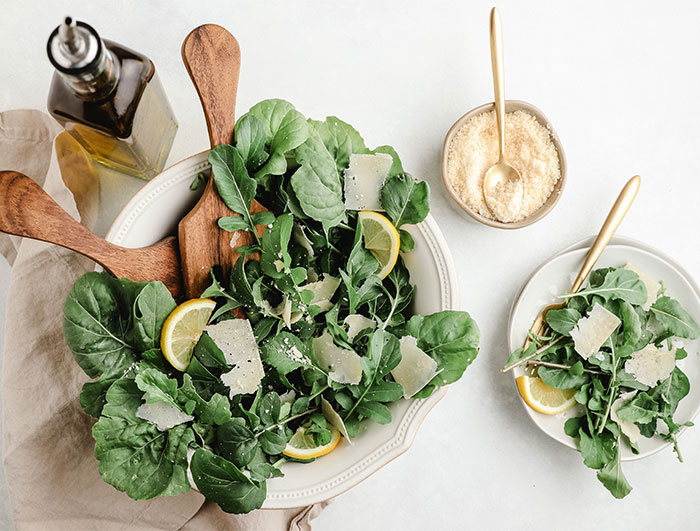
Image credits: mzito
Talented pie artist and food expert Jessica recently explained to Bored Panda the link between culinary knowledge and traditions.
“Culinary knowledge is usually passed down generationally. If that’s how your mum/dad/gran did it, that’s how you do it. There’s a lot of, ‘If it ain’t broke, don’t fix it’ mentality around the dinner tables of the world,” she said that people can’t tell what the ‘correct’ version of a dish tastes like if, well, they haven’t tried it out. You can’t say that something’s ‘wrong’ if you don’t have anything to compare it to.
“And even then, due to warm fuzzy nostalgic feelings the foods of our youth often invoke, some people may prefer the ‘incorrect’ version. Overcooked pasta just like mother used to make!” Jessica said that there are a lot of feelings of nostalgia hidden in each bite of a meal cooked in a very particular way.
“Of course, there is a line between ‘sub-optimal’ and ‘inedible’ when it comes to food. But if no one is puking up a lung or dying of obvious malnutrition, most busy parents don’t see much of an impetus to change,” the food expert told Bored Panda.
#10
Season everything. Making chicken alfredo? Season the chicken, season the pasta, and season the sauce. Never assume that one flavor element will permeate the whole dish. The difference between a $1 plate of pasta and a $12 plate of pasta is putting the right amount of salt in the water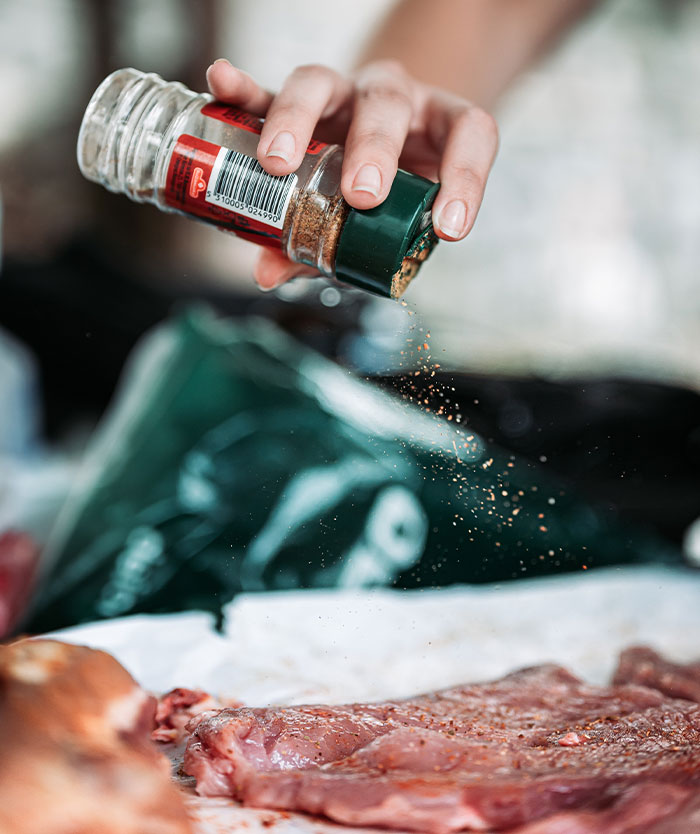
Image credits: deleted
#11
Cooking with softened butter and melted butter yield entirely differently results. For example, grilled cheese. If you butter your bread with softened butter instead of just melting the butter in the pan, you'll get a much more flavorful (and crispy) result. The fat solids emulsified in the softened butter make the bread crispier when it gets toasted over high heat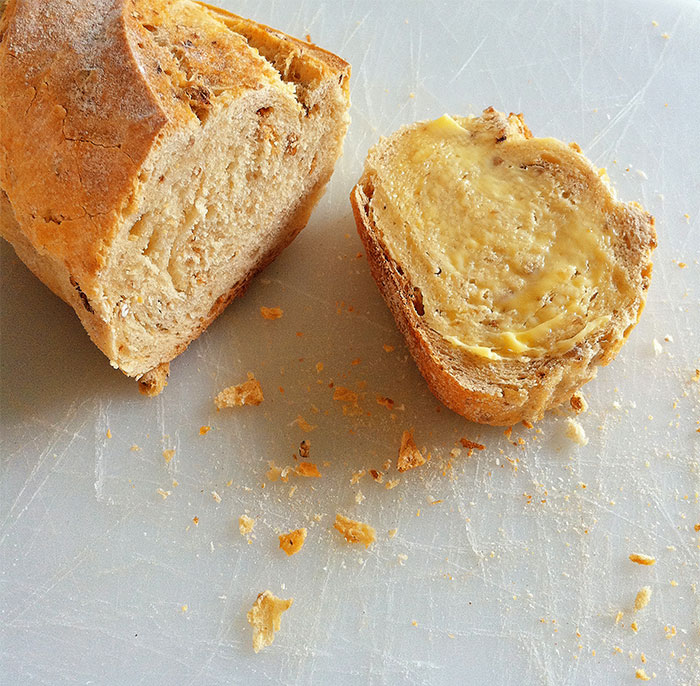
Image credits: u/becca_fox
#12
Learning proper knife safety and knife skills aren't all about chopping things as quickly or impressively as possible — when you know how to use a knife properly, you'll also save a lot of effort and make yourself far less prone to injuries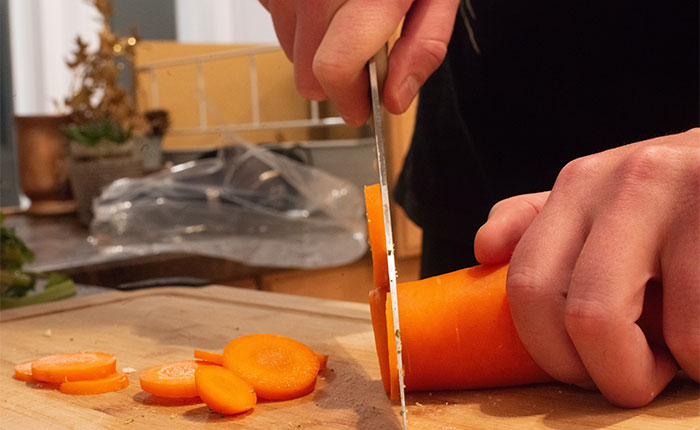
Image credits: chloesilverado
One thing’s for sure, our understanding of what’s healthy and what isn’t tends to follow fads. For instance, Jessica noted that when she was a kid, butter was “the enemy.” Meanwhile, at that same time, muffins were “the epitome of healthy diet food.” Imagine eating a 1k calorie bran muffin, “slathered in margarine,” with a cup of black coffee while thinking it’s incredibly healthy.
“There are certainly some historical food misconceptions that have done a lot of harm. The vilification of fat by the sugar lobby in the 1960s is a big one that springs to mind, as well as the whole ‘eating a giant bowl of glorified marshmallows is a-ok for breakfast’ phase,” the cooking expert said.
“Outside of broad societal attitudes towards certain foods and diets, there are a number of common everyday cooking mistakes that people make in the preparation of their food—our handling of rice and pasta are high on the list here—but outside of food safety violations, I tend to be pretty sanguine about these things,” she said that as long as there’s nothing dangerous to one’s health, we shouldn’t be too stressed about it. Unless we want to make something taste far better, of course!
“No one ever died from over-cooked pasta, or vegetables boiled within an inch of their life. Sure, they’re missing out on a heightened culinary experience, but do you really want to be ‘that guy?’ I know I’m not going to tell my grandma how to perfect her pasta boiling technique (and if you knew my grandma, you wouldn’t either!),” Jessica quipped.
#13
Don't overthink your recipes. Instead of trying to make everything as fancy as possible (and use as many impressive ingredients as you can), just learn how to shop for quality ingredients. Food doesn't have to be fancy or complicated to taste good. A simple recipe made with quality ingredients and proper technique is almost always better than being fancy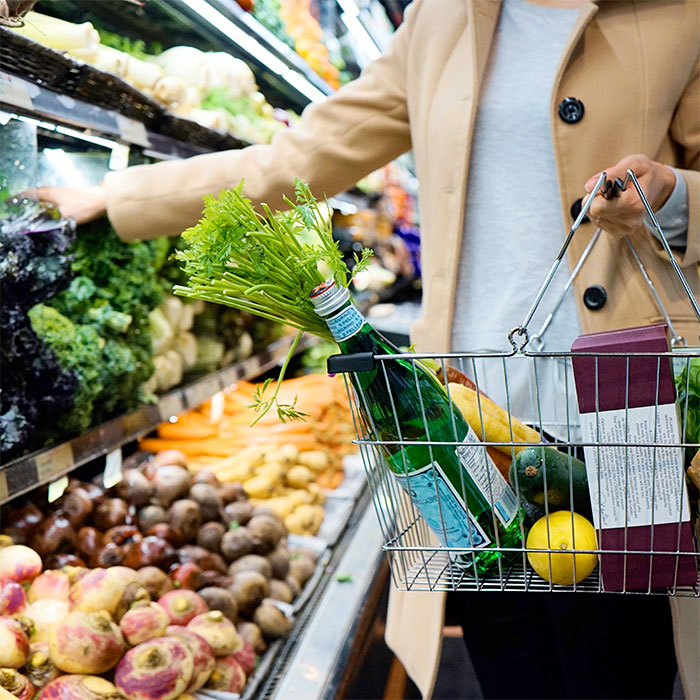
Image credits: DirtFantastic
#14
Steaks *continue* to cook even off the grill.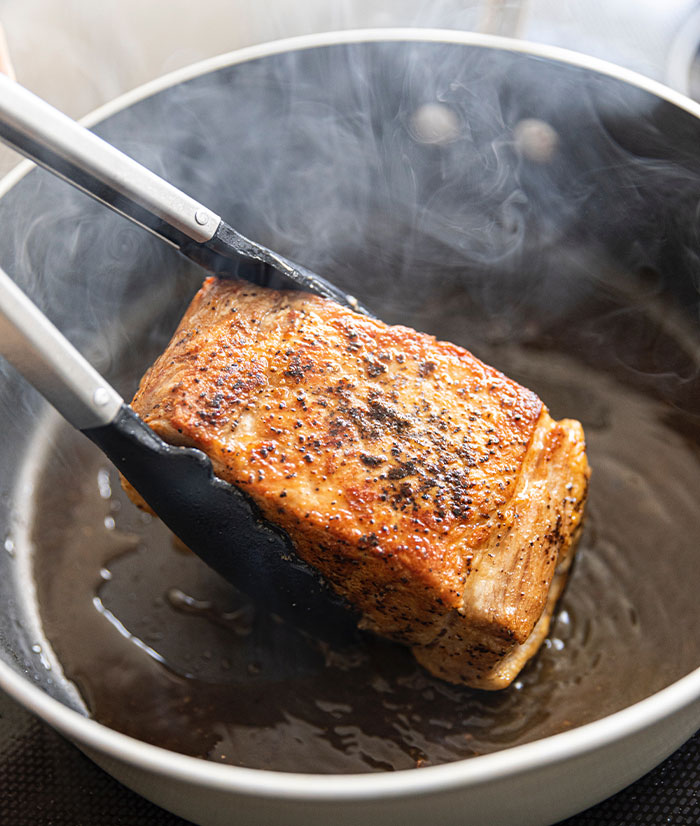
Image credits: iam4real
#15
Peanut butter can really round out the flavour in sauces and stew-like dishes.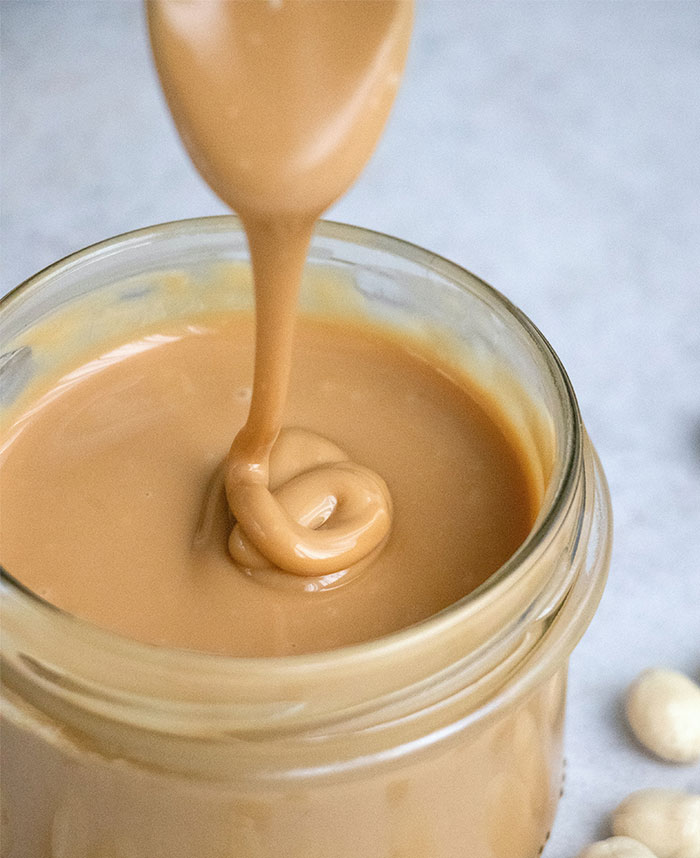
Image credits: tzivje
#16
Kosher salt is far better to cook with than iodized salt, and is considered the gold standard in most kitchens. It's also less 'salty' than some other kinds of salts, so it's more forgiving and makes you less likely to over-salt something in the first place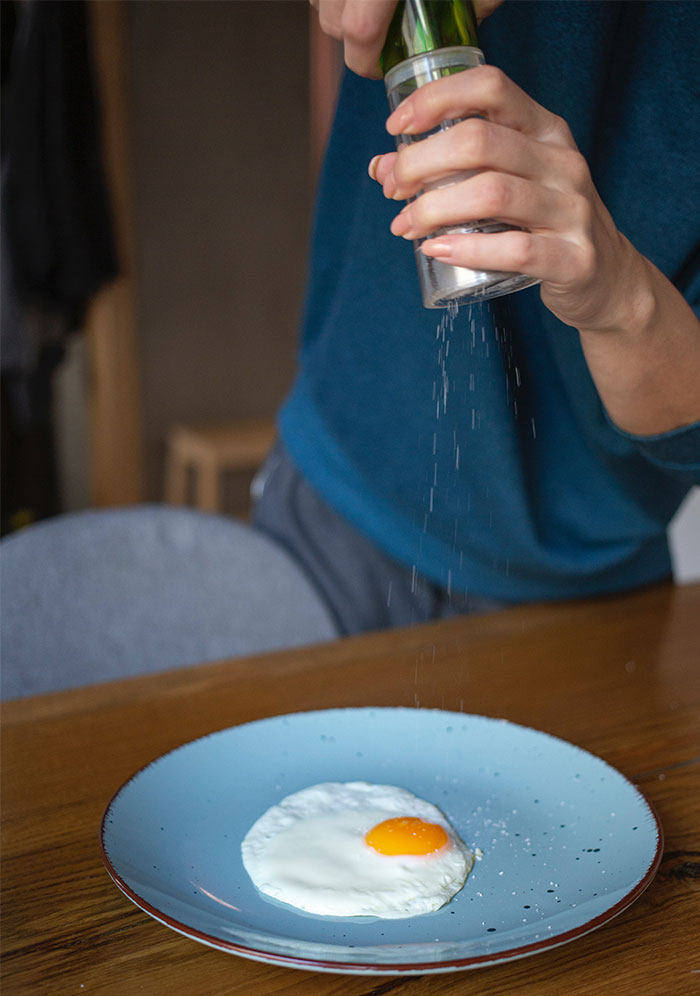
Image credits: Jessica Kelly
#17
EDIT: YES I KNOW ABOUT RICE COOKERS AND I OWN ONE, BUT THIS IS STILL A TIP.Stop lifting the lid off of a pot of rice.
Look at me. LOOK. AT. ME.
STOP TAKING THE LID OFF THE GODDAMN RICE. YOU COMPLAIN ABOUT MUSHY OR CRUNCHY RICE AND IT'S EITHER BECAUSE YOU DON'T MEASURE OR YOU WON'T LEAVE THE LID ALONE.
The steam cooks the rice, by taking the lid off you RUIN EVERYTHING **FOREVER**
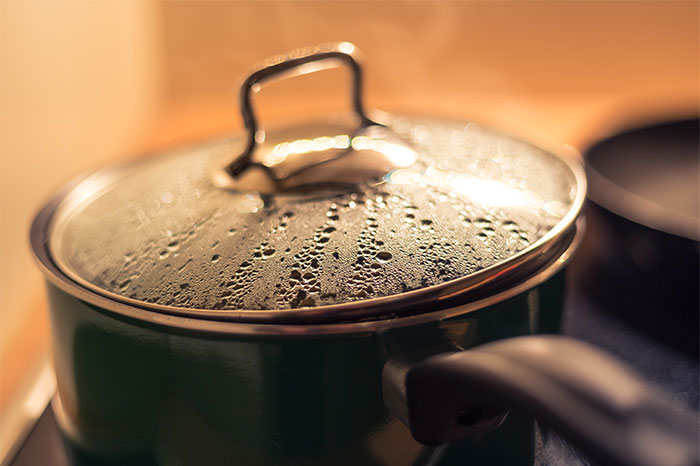
Image credits: anon
#18
Use weight--not volume--to measure ingredients for baking.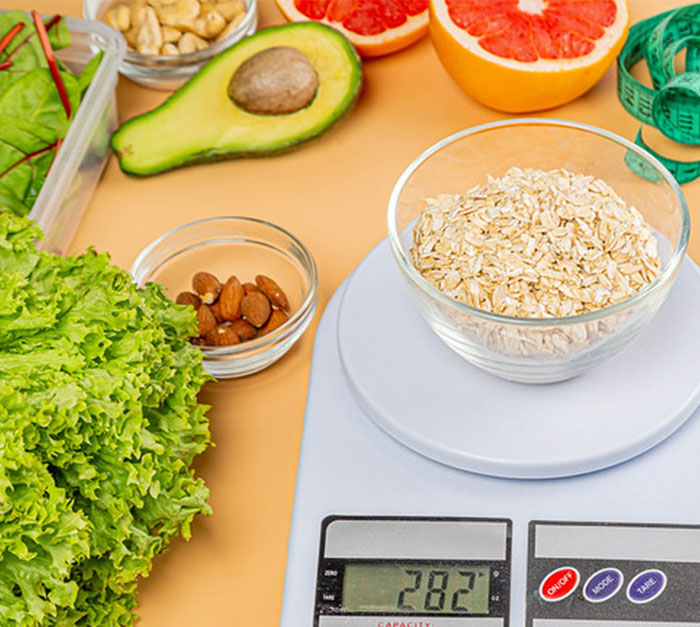
Image credits: KillerKad
#19
Cold oil, hot pan, foods won't stick.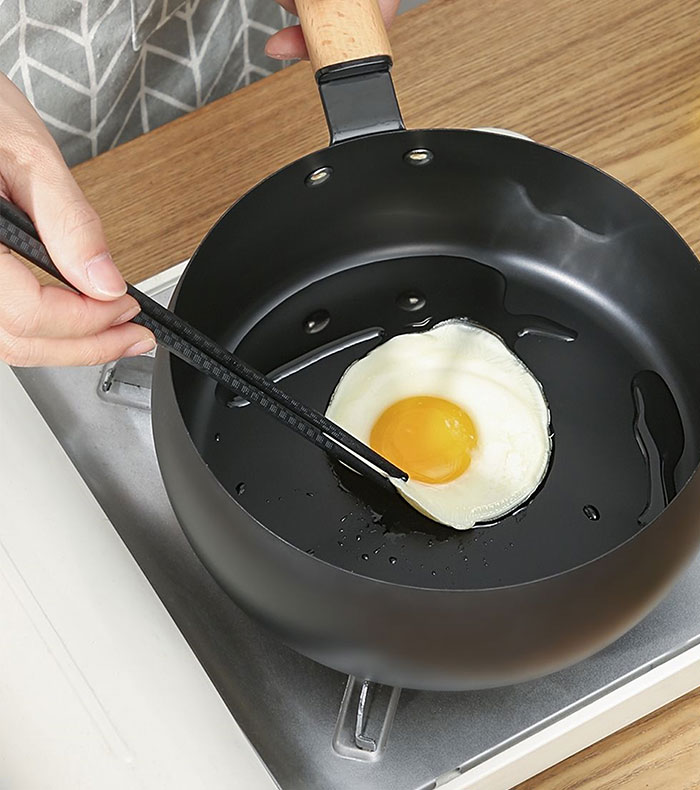
Image credits: anon
#20
Buy local! Food grown locally will almost always taste better than something grown and shipped half way across the globe. Plus it supports the farmers in your area. Check out when the farmers markets are and get to know the farmers and they will take care of you.Also get to know your butcher, he will guide you through the world of meat better than any book or website if he's any good.
Pork ftw.
#21
Use dried spices as early as possible when cooking as they need time to rehydrate. Use fresh spices at the end immediately before serving. Don't salt your food until you're about to serve.Edit: I honestly don't understand what's so contentious about this comment. It's the advice I've been given by professional chefs both in person and boilerplate text in practically every recipe I've followed over the years. Maybe because I said "spices" instead of "herbs"? It doesn't matter when you add turmeric, but it damned sure matters when you add dried rosemary.
#22
Garlic makes everything better.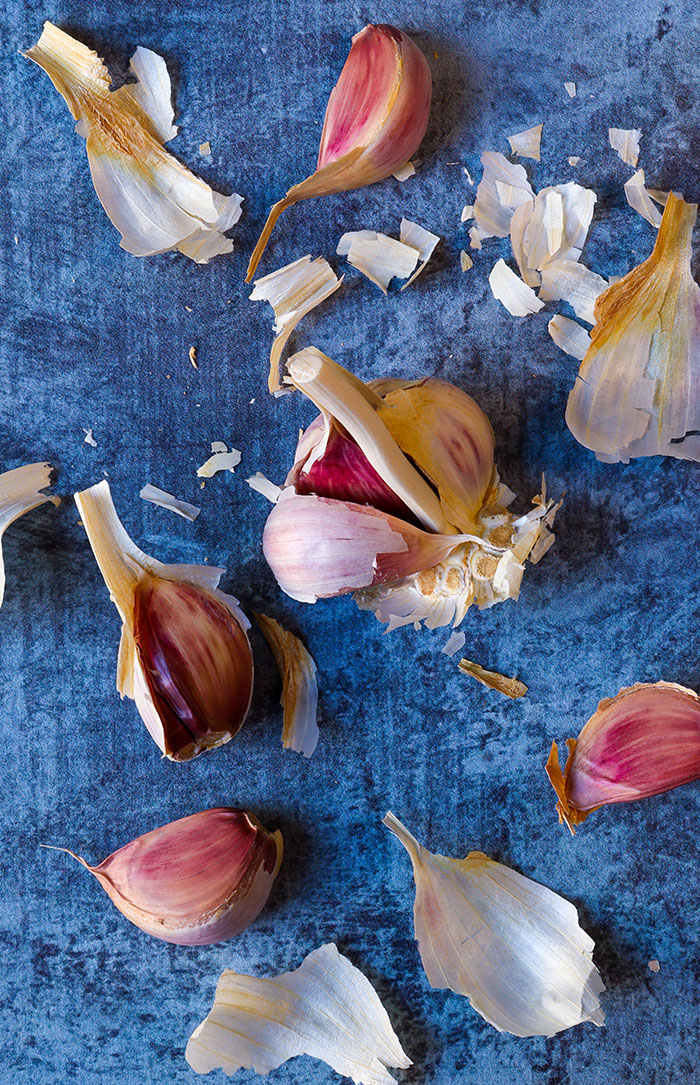
Image credits: smsmith538
#23
When making pork chops cut the ribbon of fat so that it is in pieces instead of one long piece.It prevents the chop from curling in the pan and cooking unevenly.
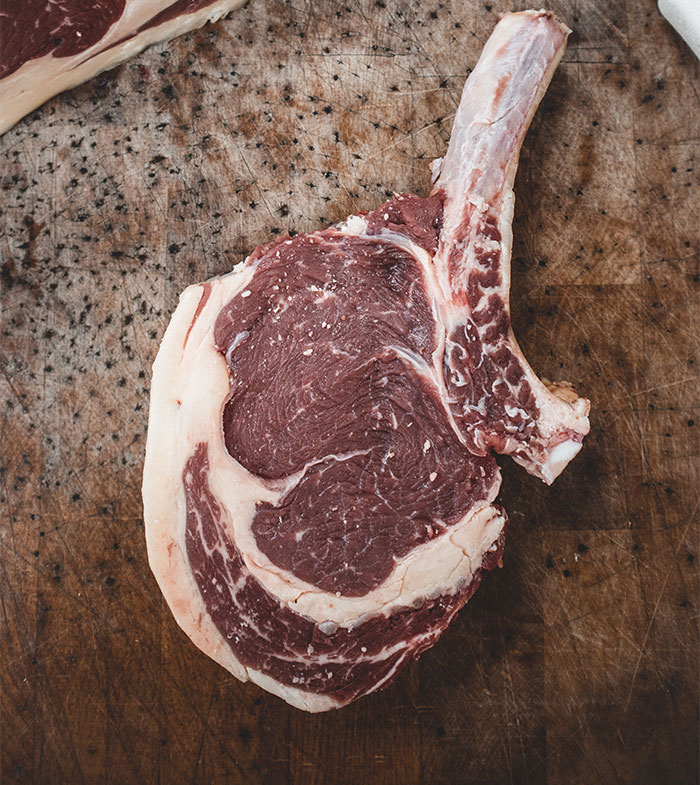
Image credits: Capitan_Amazing
#24
Make your own stock. It's remarkably simple and freezes fantastically. Use a bird carcass or wing tips plus some roasted vegetables to make a huge batch. It will make anything you make taste better.Prep your vegetables before starting your meal. If you know you're making a meal that night then cut up the veg in the morning and leave in a ziplock or whatnot. It's a lot easier to get a meal timed properly when you're not trying to do too many things at once.
#25
If you swirl the hot wings around in the bottom of the sauce bowl for about eight seconds before tumbling them, the oil in the sauce (butter - what have you) breaks down in the heat first and you get a better coverage when you tumble / flip them.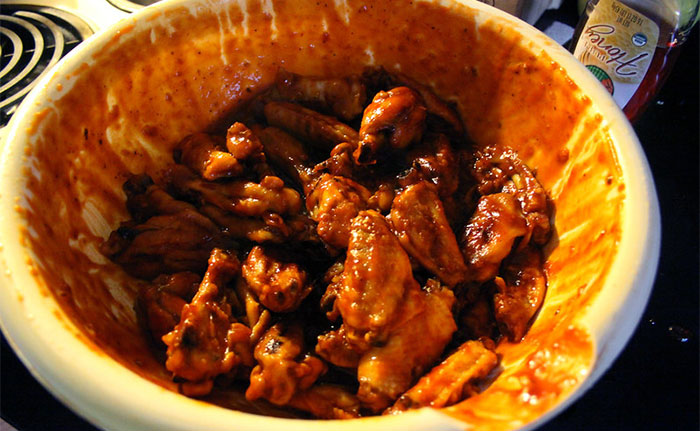
Image credits: Proteon
#26
Peel your carrots.Not everything needs to be on high heat.
A good chef knife will be the only tool you really need for home cutting.
Save your bacon fat.
Soups are the best way to use leftovers.
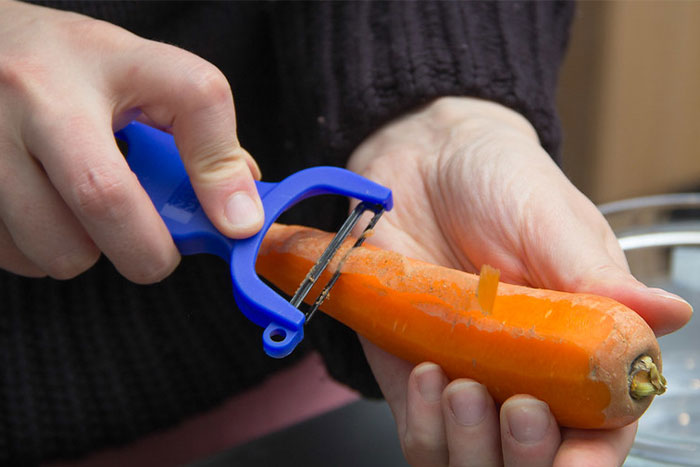
Image credits: Eversooner
#27
**1. Pay attention to plating.**A nice, clean, warm plate can make the difference between an OK meal, and a great meal. Most restaurants I've worked in aren't serving anything special, they just serve it in a way that makes it *look* special. If you treat your homemade stuff like it was in a five-star restaurant, you can make Hamburger Helper taste like scratch-made casserole.
**2. Read recipes completely, and prepare before starting.**
Don't start cooking until your mise en place is completely squared away. Get out ever knife, tool, and pan you will need. Measure out all of your ingredients, and put all of them on the counter next to your stove. When you are on step 1 of your recipe, you should know what steps 2 and 3 are. With most recipes, you don't have time to go back to the cookbook to double-check what you're doing while your chicken dries up into leathery bits in the pan. Plan ahead, and make sure you're ready to *finish* your dish before you start it.
**3. A good sauce can save almost anything.**
Learn how to cook at least three sauces from memory with every day ingredients. A red wine sauce (cup or so of red wine, some butter, salt, onions and pepper) can turn any cheap steak into a great meal. Simple marinara can be made for under $10 bucks, and is just as good as the $20 pasta you get at Maggiano's. Find some recipes you like, and memorize them.
**4. Season Everything.**
Cooking chicken alfredo? Season the chicken, season the pasta, season the sauce. Never assume that one flavor element will permeate the whole dish. The difference between a $1 plate of pasta and a $12 plate of pasta is putting the right amount of salt in the water. While we're on the subject...
**5. Taste Everything.**
Taste everything, all the time. Good Italian chefs taste the pasta water before they drop the noodles. Taste your sauce every time you add to it. Never throw things in a pan and "wait to see" what happens. You should know what your dish will taste like *before* it hits the plate.
**Edits:**
* Don't taste boiling pasta water. I have seen life-long chefs do this, and it boggles my mind.
* Always keep a good French cookbook in your kitchen. The French are known for their food for very good reasons.
* Unless you're baking, recipes are guidelines, not infallible rules. Once you are comfortable with the basics of cooking, apply those skills to your own original ideas. Use cookbook recipes as jumping-off points for ingredients you really like.
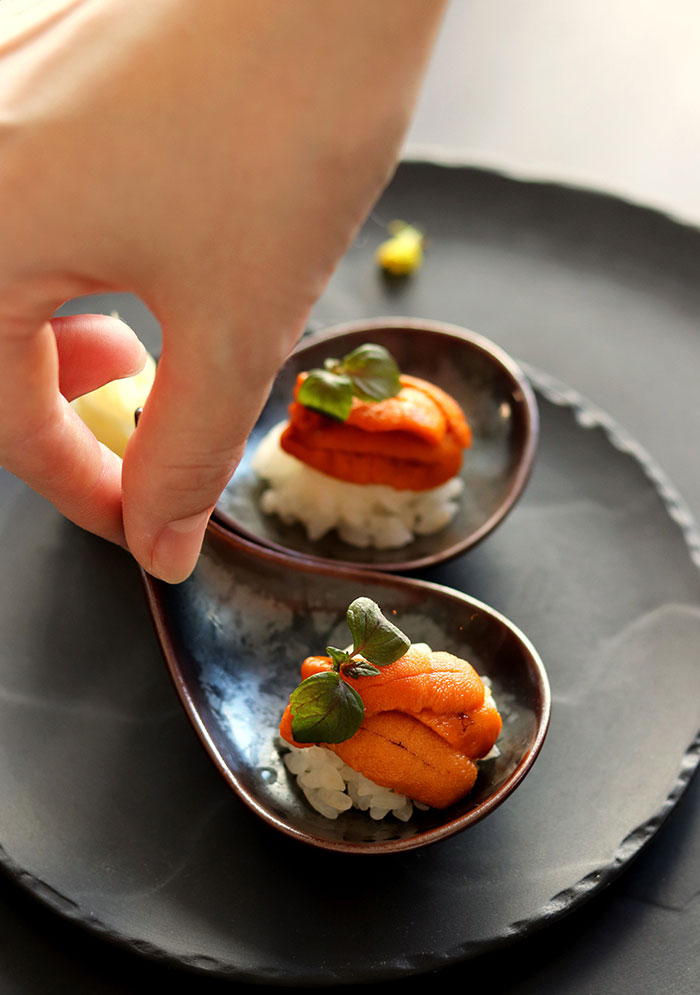
Image credits: anon
#28
SALT. My god salt your food. If there is one mistake that home cooks make, and then wonder why it doesn't taste as good as a restaurant, it is usually too little salt. Salt opens up the receptors on your tongue and enhances the flavor of pretty much everything.Easiest example is salting the water you would use to boil any starch (pasta, potatoes, etc). You should put **a lot** of salt in the water. Think about how much you would consider a lot, then double it, and add that much. This is the best time to season any starch, when it is boiling. Then adjust the flavor (add more) if needed once it is cooked.
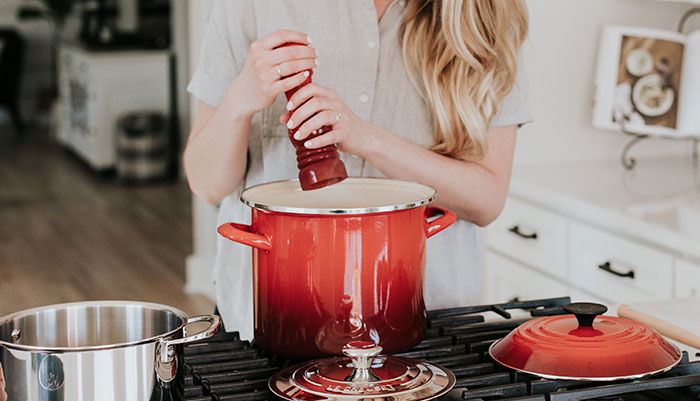
Image credits: IM_Swooptech
#29
Im no professional, but in my years of cooking i've found that NOT EVERYTHING NEEDS TO BE COOKED ON HIGH.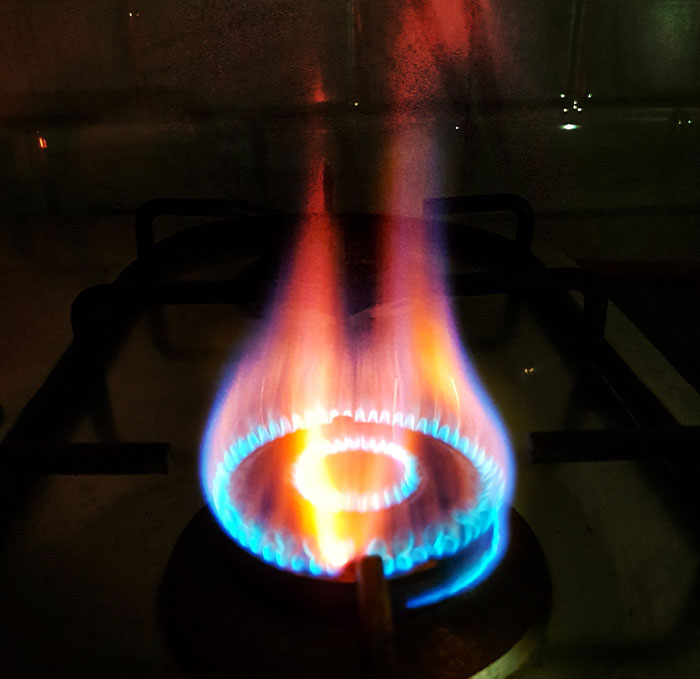
Image credits: Pitoface
#30
Don't cook bacon naked. (microwaving is fine)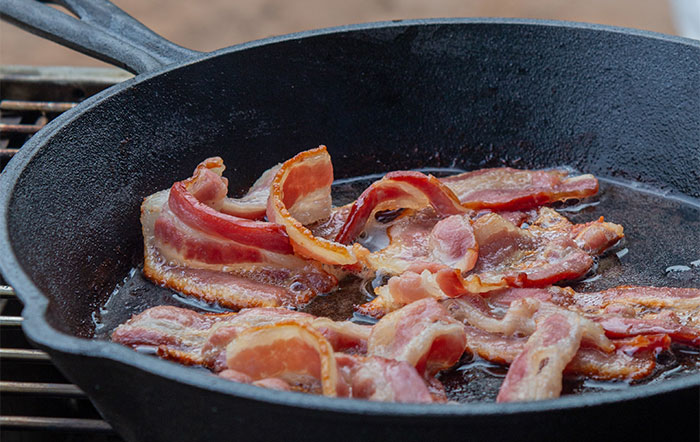
Image credits: Keysar_Soze
#31
A chef taught me that sprinkling pepper onto strawberries makes them taste like strawberry-flavoured candy. I tried it and definitely recommend it.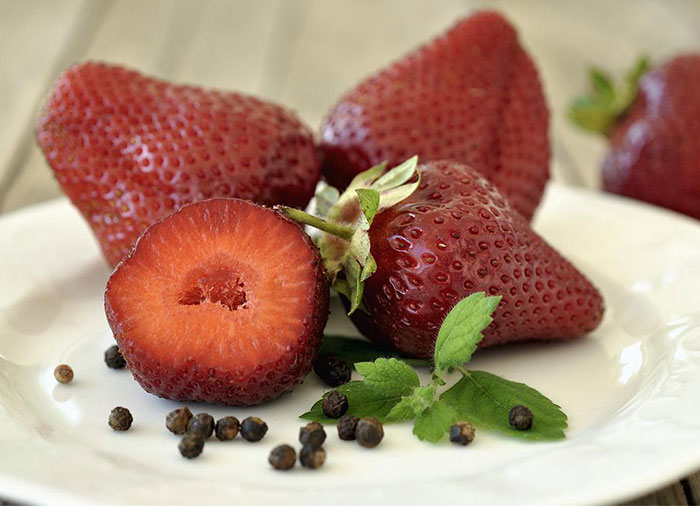
Image credits: anon
#32
Wash your god damn hands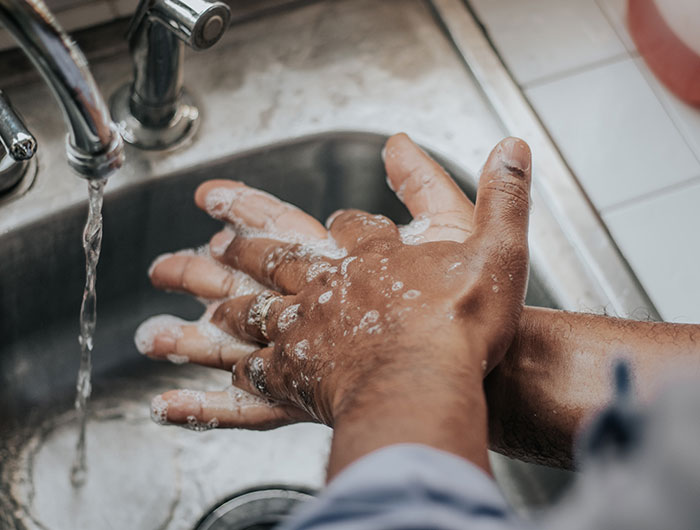
Image credits: toker98xx
#33
Using your dominant hand, touch your pointer finger to the muscle at the base of your thumb, on the palm. The fleshy part that you can move freely.When you use your pointer finger and press down on that muscle, that is rare.
Middle Is medium rare
Ring is medium
Pinky is Well Done. (Don't ever cook meat to well done.)

Image credits: anon
#34
Do NOT put cast iron stuff (skillets, grill pans, etc) in the dishwasher. Unless you like ruining things.Also, presentation somehow adds to how good the food tastes
#35
My brother is a chef and works at one of the leading restaurants/hotels in my state. Has cooked for presidents, A-list actors, etc. Shadowed him last night as he was cooking dinner for the family and I'd have to say the most surprisingly simple yet brilliant thing I learned was to throw a little bacon in with vegetable medleys. Still very healthy, yet insanely delicious. I've never been able to eat sprouts or kale happily before, but that was just incredible.#36
When you're cooking... COOK. Don't read, text, talk on the phone, watch a movie or anything else. Those couple of extra minutes when you're not paying attention was when you burned the bottom of the sauce and now it tastes like an ashtray.When you hear people who make some great food talk about Love being the special ingredient. They mean it. They love cooking. They love making food that people enjoy. They love seeing happy faces. They love to eat good food.
You can't have all of that while you're watching a rerun of CSI and letting your cookies burn into something that explodes into dust when you try to bite into them.
#37
Perfect cake - weigh however many eggs you need. (2 or 3 generally) everything else should be the same weight (marg, flour, sugar etc)#38
Tip #1You can make popcorn in the microwave with just kernels, a bowl, olive oil, salt, and plastic wrap. It is way healthier than bags, cheaper, and the oil makes it super crunchy.
Place kernels in bowl. Drizzle half a teaspoon of oil on the kernels and add a pinch of fine salt. Mix. Cover top of bowl with plastic wrap. Poke a couple of small holes with your fingers. Cook on high 1.5 minutes.
Tip #2
If making a grilled cheese, butter your bread with softened butter, not melted butter. The fats solids emulsified in the butter when sufficiently toasted with the bread makes for much better flavor. Also, make sure all ingredients in your grilled cheese is room temp before cooking. Cheese will be less likely to separate and the sandwich itself will cook more evenly.
Tip #3
If boiling vegetables or pasta, make sure to salt the water. It makes the pasta taste better and the vegetables brighter in color. Cook both these slightly underdone because carryover cooking occurs even after taking it off the heat.
(edit) tip: Never, ever wash your pasta under cold tap water after straining it. It will taste horrible and lose its texture, even if using it for pasta salad. If you need your pasta to cool, spread on a baking sheet. You can use a drizzle of oil so it won't stick together after cooling.
(Edit #2) Yes, I know you can use the stove instead of the microwave. For me, the microwave is faster and a quicker clean up because I can put the bowl in the dishwasher after. I hand wash all my pans carefully so would rather not use them for this, especially since I like to eat plain popcorn almost every day. Also, easier to control against burning and you don't have to stand next to it when using the microwave. I don't worry about plastic wrap because it's not actually touching the food when it's hot and none of my research has shown that plastic wrap nowadays releases plasticizers in damaging amounts to do anything. I'm a chef, yeah, but at home I'm really lazy.
(Edit #3) TIL: The people of reddit take popcorn and grilled cheese very seriously.
#39
The perfect omelet is made with 2 eggs not 3, some people add milk but that's a mistake.Also, when cooking pancakes, heat the pan until its hot enough where if you add a drop of water it immediately boils. roughly 350 F.
#40
Dull knives are more dangerous than sharp knives.#41
The Roux - Probably one of the most useful things in cooking, it's used as base for sauces. heat up a few tbs of butter in a saucepan and stir in an equal amount of flour. Once it is thick and frothy you can add a liquid of your choice for the base of your sauce (milk or chicken stock are my favorites) add as much as necessary to reach your desired consistency. Add spices or melt cheese to make a great cheese sauce. Be creative!#42
Chop with the rear part of the blade, not the tip, in a rolling motion.#43
Mix one part sugar and water, heat it and stir until all the sugar dissolves. Brush this in-between layers of a cake and keep it super moist and awesome for longer.#44
* Mise en place ("mess in place")... Get everything sorted out, measured out, chopped and prepped beforehand.* Preheat your oven for 20 minutes AFTER the timer beeps. This will allow the metal inside to heat up as well, resulting in better heat retention when you open the door.
* When baking, if the recipe says 10 - 12 minutes, set your timer for the 10. You can always add minutes to a bake, but you can never take minutes away.
* Wet towel or a grippy shelf-liner thing under your cutting board. Don't chase it across your counter and cut yourself.
* Sharpen your knives regularly. A few quick passes on a stone or through a machine every other time you use them will prolong their life as well as yours. The most dangerous tool in a kitchen is a dull knife.
* Don't bake in dark-colored pans. Dark holds heat. So if you're baking a cake and are using $10 Walmart pans that are dark gray, you're going to overcook the edges before the center is done. Buy some light pans on Amazon and thank me later.
* Don't be afraid to experiment. Try adding dried sweetened cranberries (craisins) to your oatmeal raisin cookies. Tinker with your favorites and maybe change them up a bit.
* Carry-over cooking. As mentioned repeatedly in the thread, food will continue to cook after it's taken off the heat. So always shoot for under when you pull.
* Let your meat rest. Just pulled a 7lb prime rib out of the oven? Better let that b***h rest for at least 10 minutes before you cut it. Otherwise it'll bleed out, become dry, and you'll be pissed. Resting lets the juices redistribute throughout the meat, meaning each slice is perfect.
* Save your spice bottles. When you make custom spice combos, like rib rubs or seasoning salt, these come in handy. Piece of masking tape with the contents on it, and you're good to go.
* Read reviews on recipe websites. Many of the people have made the recipe repeatedly and tweaked it according to their tastes, which might be similar to yours. Yes, 1000 comments might seem like a lot to fish through, but if you're 100 in and you notice a common trend, like "too much salt" or "lemon flavor wasn't strong enough", you'll get the hint.
#45
When making chili, add sriracha. (That red hot sauce with the rooster on it.) Not a lot, just one good squirt into the pot. Gives it a good spiciness that normal chili powder doesn't achieve, as well as a good flavor.#46
If you oversalt something (soup, stew, etc.), throw a potato into the pot. It'll suck up all the salt and won't leave it oversalted.#47
1. mushrooms contain a lot of water. Don't wash them, brush the dirt off.2. dessert and baking is more of a science than an art. Follow instructions and measurements of ingredients exactly
3. herbs such as thyme, rosemary, cilantro, bay leaves, parsley enhance the flavour and fragrance of your food. ex. roasted potatoes, meat, soups, broth.
4. when you're boiling something, the water WILL evaporate and will reduce the solution thicker and more flavourful.
5. there is a difference between oils. (peanut, canola, olive, granola) Know when to use one or the other
6. Whenever you cook meat, always let it rest for at least 5 minutes or else the juices will escape and lose flavour
7. always have onions and garlic ready to use
**EDIT:** a lot of people are refuting my "brushing mushroom" thing. I watch a lot of cooking channels and I myself cook frequently and I do recall that mushrooms have so much water in them already that if you coat them in water, it won't release it's full flavour. I'm not an expert so don't hold me up on this. [here's a video.](http://www.youtube.com/watch?v=zf-DPoSMP04)
#48
-Most foods cook after you pull them out of the; oven, grill, or pan.-Always add a little less seasoning if you are unsure, you can always add more later.
-If you do over-salt something (rice, soup or whatever) cut a potato in half and throw it in there, the starch will suck up the salt.
-Always wash your hands before and after touching food, no one wants your germs on their food.
-Use the drippings from a pot roast or turkey at the bottom of the pan to make gravy using corstarch and water (plus spices).
-Stir fry's you want your veggies to hit a HOT pan, pre-heat a pan as you would the oven.
-You can use the fleshy part of your thumb's muscle to test for meat done-ness. index finger - thumb = rare| middle finger to thumb = Med Rare| Ring finger - thumb = med well| pinky to thumb = well done.
-Always wash your equipment as you go, if needed use a spoon to scrape pans to get that hard to clean stuff off.
-Know how to use a knife! and know the different terms for cuts in food. (julienne, brunoise, chiffonade, [google how to do them, and their use])
-Salad dressings are easy! Seasoning/herbs->vinegar of some sort->oil (mix dressings as you are pouring in the oil, give your GF/BF an orgasm in the mouth)
-MOST IMPORTANT, IF YOU DON'T KNOW HOW TO COOK FIGURE IT OUT, OR ASK SOMEONE! COOKING IS A VITAL TOOL TO BEING ABLE TO LIVE, PEOPLE TAKE IT FOR GRANTED (I KNOW A BUNCH OF PEOPLE WHO REFUSE TO COOK THAT'S WHY I SAID IT), HOWEVER IT IS A LEARNED SKILL. JUST LIKE ANYTHING ELSE IT TAKES TIME TO MASTER, KEEP AT IT AND YOU WILL GET IT.
-also, parsley is cheap and adds a dimension of "art" to your food.
If I can think of anymore I will add them, also been cooking for 10+ years in restaurants...
#49
I'm not a chef but an awesome chef's knife that I got as a gift changed *everything* in how I prepare my food. I can't tell you how important it is to have good knives, it makes everything go so smoothly.#50
The best advice I've gotten is that the main two differences between a restaurant chef and a home cook, other than training and basic cooking knowledge/skills, is that the chef will season (salt) much more generously.Second and most importantly CLEAN AS YOU GO. You will become so much more efficient in the kitchen, will always have space to work, and will have very little cleaning work to do when you're finished cooking!
#51
sharp knives mean less wounds, bacon grease for every pan related event, learn how to properly cut an onion (halved, top removed, scored vertically toward the intact base, then sliced horizontally), shallots f*****g rule, when you can taste the salt you've used too much (generally speaking) and mandolines are wonderful but remain f*****g attentive while using- there's a good reason i call 'em palm peelers.edit:punctuation
edit:sp

No comments